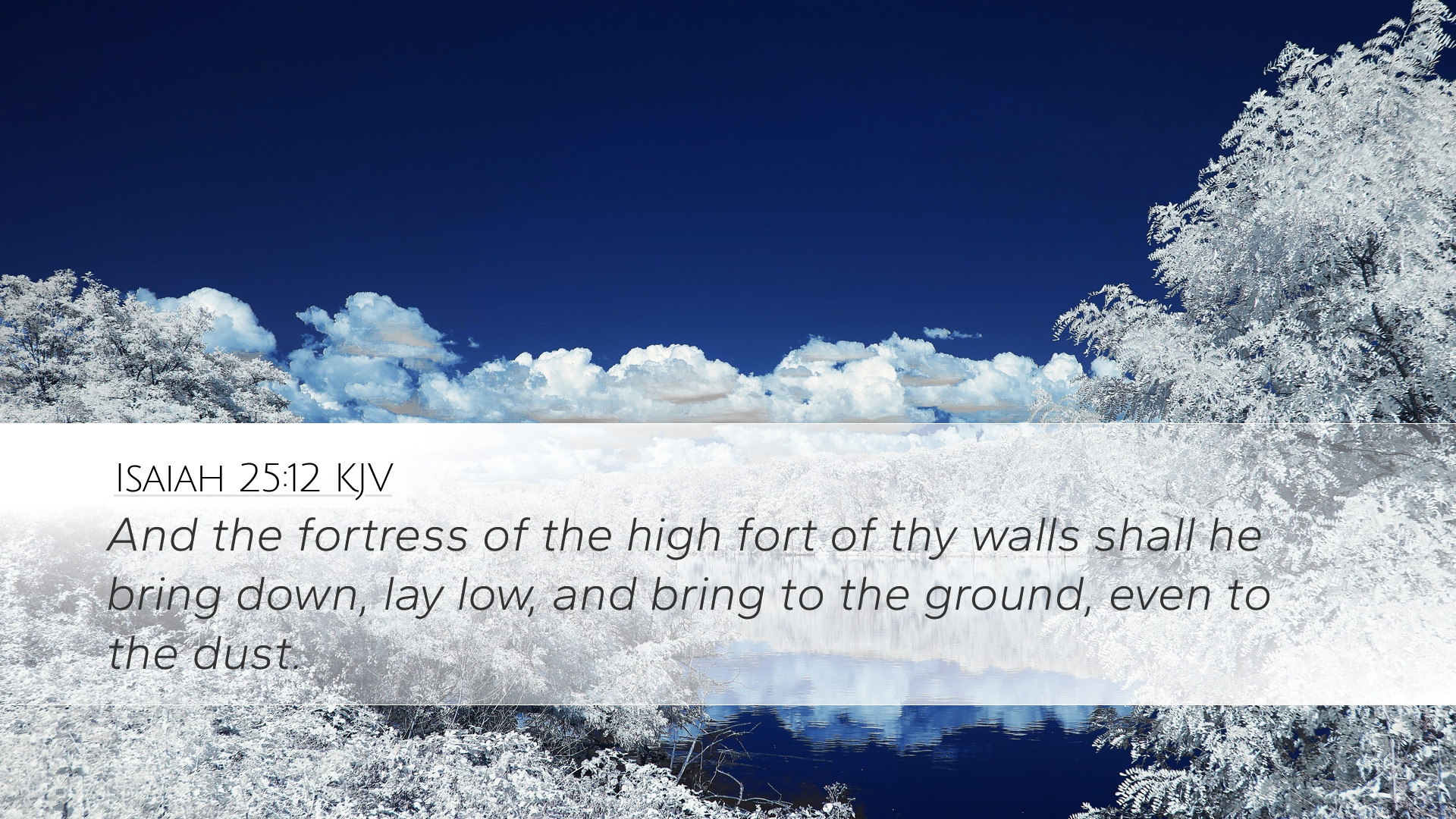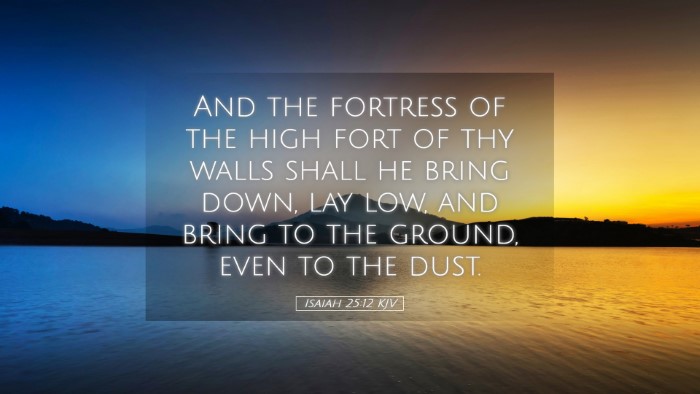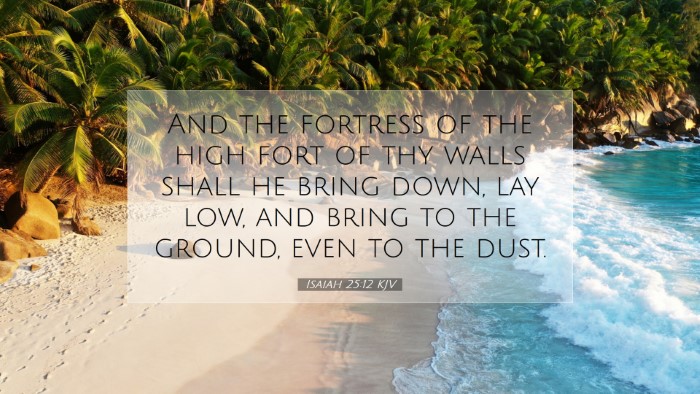Commentary on Isaiah 25:12
Isaiah 25:12 is a poignant verse within a larger context of hope and judgment. It reads:
"And the fortress of the high fort of thy walls shall he bring down, lay low, and bring to the ground, even to the dust."
This verse encapsulates a dramatic moment in the prophetic literature of Isaiah, revealing profound truths about the sovereignty of God, the fate of the enemies of His people, and the ultimate triumph of divine justice.
Context and Overview
To fully grasp the significance of Isaiah 25:12, one must consider the broader context of Isaiah’s prophetic ministry. The book of Isaiah intricately intertwines themes of judgment and salvation, speaking both to the immediate circumstances of Israel and their eschatological hopes.
- Historical Background: Written during the tumultuous period of Assyrian threats, Isaiah’s prophecies address the realities of sin, judgment, and the assurance of God’s ultimate sovereignty.
- Literary Context: Chapter 25 is part of a larger section (Chapters 24-27) often referred to as the "Isaiah Apocalypse," where God’s judgment on the world is pronounced, followed by a vision of restoration and triumph for His people.
Theological Insights
Isaiah 25:12 provides significant theological insights pertinent to both scholars and practitioners:
- Divine Sovereignty: The verse communicates God's absolute power over earthly kingdoms and their proud fortifications. As noted by Matthew Henry, “Those that are high and lifted up in their own esteem will be brought down to the dust.” God’s ability to dismantle human pride serves as a sober reminder of His preeminence.
- Judgment and Justice: Albert Barnes emphasizes that God’s judgment against the fortresses symbolically refers to the oppressive regimes that oppose His people. This can be understood as a reassurance to the faithful that their suffering is not in vain, as God will ultimately execute justice.
- Hope in Despair: Adam Clarke reflects on the nature of God’s deliverance, stating that while the destruction of the oppressors may seem harsh, it also paves the way for a new creation where God’s people can dwell in peace. Thus, the dismantling of the “high fort” signifies hope and restoration for the faithful.
Exegesis of Key Terms
Understanding the terminology used in this verse is crucial for deepening its meaning:
- Fortress: Refers to fortified cities or strongholds that signify security and pride. In a biblical sense, these fortresses often symbolize the might of nations that oppose God and His people.
- High Fort: Implies a position of superiority and arrogance against God. The image conveys the idea that no matter how fortified or powerful they appear, they are not immune to God’s judgment.
- Ground, even to the dust: This phrase acts as a metaphor for complete and utter destruction. It suggests total defeat and humiliation, showing that God has the ultimate authority to bring down even the mightiest of defenses.
Application for Today
When interpreting Isaiah 25:12, contemporary pastors, students, and theologians are encouraged to draw practical lessons from this profound prophecy.
- Trust in God’s Plan: In times of uncertainty and oppression, believers can find solace knowing that God remains in control. This verse reassures us that He will act against those who stand against His purposes.
- Humility Before God: Just as God topples the high and mighty, believers are called to live with humility and recognize their dependence on divine grace rather than human strength.
- Justice in Ministry: For those in pastoral ministry, this verse serves as a reminder to advocate for those who are oppressed. It challenges the church to stand against injustice, reflecting God’s heart for equity and truth.
Conclusion
In summary, Isaiah 25:12 eloquently expresses God’s power to bring down the high and proud. As people of God, we are reminded to cling to His promises amidst life's challenges and to anticipate His ultimate victory over oppression and evil. The insights found within established commentaries illuminate the rich theological and practical dimensions of this verse, providing a nuanced understanding that can guide faith and ministry.


